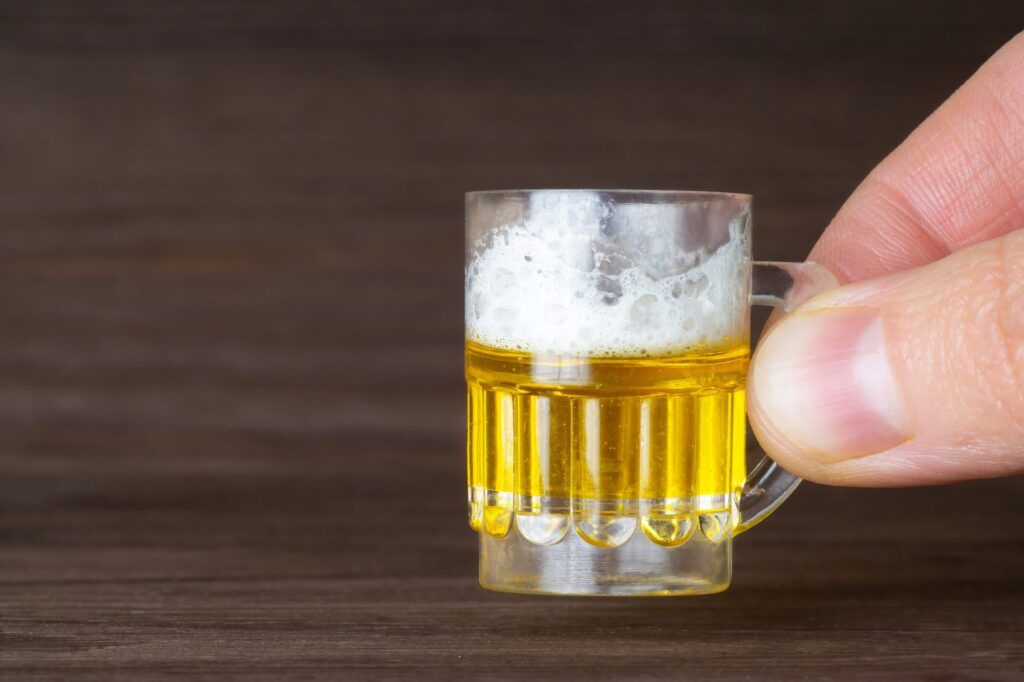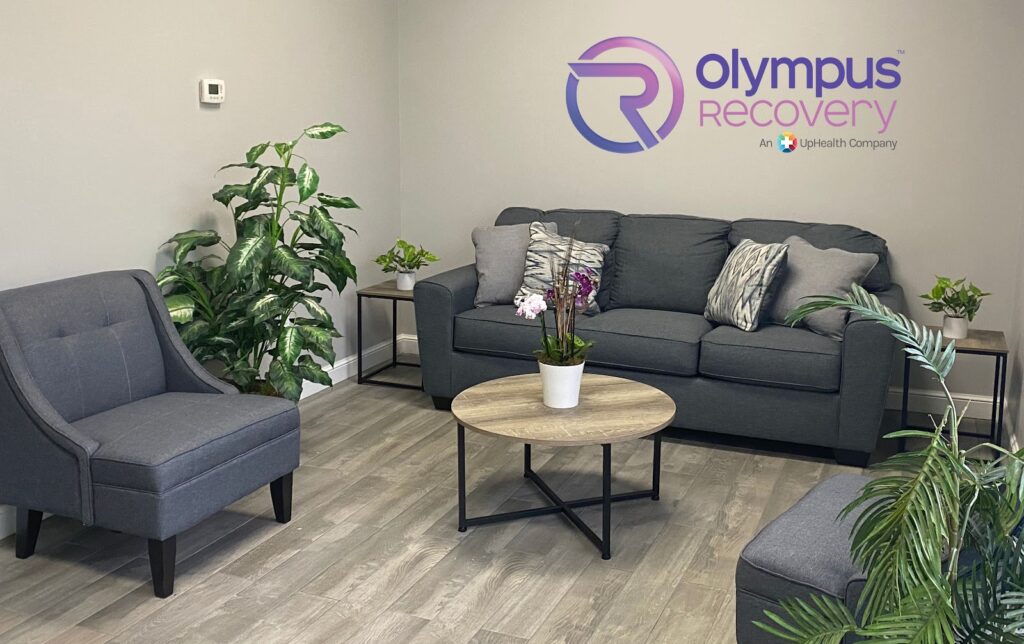What Is Alcohol Addiction?
 Often, what begins as casual or social drinking can subtly morph into a more profound dependence on alcohol, blurring the line between enjoyment and necessity. This transition from occasional consumption to alcoholism is insidious, taking hold of an individual’s life often before they even recognize the signs. As patterns of drinking intensify, the repercussions touch not only the individual but also their family, friends, and broader community.
Often, what begins as casual or social drinking can subtly morph into a more profound dependence on alcohol, blurring the line between enjoyment and necessity. This transition from occasional consumption to alcoholism is insidious, taking hold of an individual’s life often before they even recognize the signs. As patterns of drinking intensify, the repercussions touch not only the individual but also their family, friends, and broader community.
According to the National Institute on Alcohol Abuse and Alcoholism, 14.5 million Americans over the age of 12 had alcohol use disorder in 2019. Unfortunately, just 7.2% of these individuals received treatment.
Yet, amidst this challenging journey, centers like Olympus Recovery are ready to help! Whether it’s for yourself or a loved one, Olympus Recovery is steadfastly committed to guiding each individual through every phase of their recovery, offering the expertise, compassion, and tools essential for reclaiming a life free from the grip of alcohol addiction.
What Is Alcohol Addiction?
 Alcohol addiction, commonly referred to as alcoholism, is a chronic disease characterized by an uncontrolled consumption of alcohol, an obsession with drinking, and continued use despite adverse consequences. Rooted in a combination of genetic, environmental, and psychological factors, it often progresses in severity over time, impacting both the individual and those around them. Key indicators include:
Alcohol addiction, commonly referred to as alcoholism, is a chronic disease characterized by an uncontrolled consumption of alcohol, an obsession with drinking, and continued use despite adverse consequences. Rooted in a combination of genetic, environmental, and psychological factors, it often progresses in severity over time, impacting both the individual and those around them. Key indicators include:
- Increased Tolerance: Needing more alcohol to achieve the same effects or experiencing reduced effects when drinking the same amount.
- Withdrawal Symptoms: Experiencing nausea, sweating, shakiness, and anxiety when not drinking.
- Loss of Control: Inability to limit or control the amount of alcohol consumed.
- Time Consumed: Spending a significant amount of time obtaining, drinking, or recovering from alcohol.
- Neglected Activities: Abandoning previously enjoyed activities or responsibilities in favor of drinking.
- Persistent Desire: A strong craving or compulsion to drink, even at inappropriate times or places.
- Continued Use: Drinking even when aware of the physical or psychological harm it’s causing.
Understanding alcohol addiction is the first step in recognizing its presence and seeking appropriate intervention. This condition goes beyond frequent drinking– a pervasive issue that demands attention, empathy, and comprehensive care.
What Are the Warning Signs of Alcoholism?
 The journey into alcoholism often begins in shadows, unnoticed and misunderstood. In a culture where alcohol use is normalized, dismissing or rationalizing excessive drinking patterns is easy. While occasional sips in a social setting might seem benign, they can, over time, evolve into a deep-rooted dependence on alcohol.
The journey into alcoholism often begins in shadows, unnoticed and misunderstood. In a culture where alcohol use is normalized, dismissing or rationalizing excessive drinking patterns is easy. While occasional sips in a social setting might seem benign, they can, over time, evolve into a deep-rooted dependence on alcohol.
Understanding the transition from casual drinking to addiction is pivotal. To make this distinction clearer, be vigilant about the following red flags:
- Uncontrollable Consumption: Despite intentions or efforts, an inability to regulate or reduce alcohol misuse.
- Overpowering Cravings: An intense and often overwhelming desire to drink, even at inappropriate times.
- Neglecting Priorities: Consistently prioritizing drinking alcohol over crucial personal and professional commitments.
- Escalating Tolerance: The necessity to consume alcohol frows to achieve the desired effects, signaling a growing dependence.
- Draining Finances: A noticeable surge in expenditure related to buying alcohol, often at the cost of other essentials.
- Social Withdrawal: A gradual distancing from family members and friends, especially those who aren’t part of the drinking circle.
- Secretive Drinking: Consuming alcohol alone or hiding the true extent of one’s drinking habits from others.
- Physical Repercussions: Manifesting symptoms of alcohol withdrawal when not drinking, indicating physiological dependence.
- Emotional Turbulence: Heightened mood swings or pronounced irritability, often intensifying during periods without alcohol.
- Dangerous Pursuits: Engaging in high-risk behaviors, especially when under the influence or procuring more alcohol.
It’s crucial to remember that alcoholism is a multifaceted disorder, manifesting differently in every individual. Hence, if you or someone you know exhibits any of these signs, it’s imperative to consult a professional.
Taking action solidifies the journey towards healing.
Centers like Olympus Recovery provide not only a diagnosis but a structured and compassionate path to recovery. Recognizing the problem is the first step.
Learn more

The Effects of Alcoholism
Alcoholism isn’t just a personal challenge; it reverberates across vaious facets of an individual’s life. Those grappling with it face financial, career, emotional well-being, and relationship setbacks. Additionally, the fallout often extends to their families, creating wider distress.
From a Health Perspective:
- Physical Health: Alcohol abuse strains the heart, liver, kidneys, pancreas, and brain. It can lead to conditions ranging from high blood pressure and liver disease to severe diseases like various cancers.
- Mental Health: Excessive drinking is linked to mood disorders, with a notable connection between alcoholism and conditions like bipolar disorder. While alcohol might offer temporary relief, it often exacerbates anxiety over the long run.
From a Family’s Perspective:
The effects of one person’s alcoholism can ripple through a household, straining relationships, causing emotional distress, and sometimes even leading to financial hardships. Children may face neglect or develop anxiety, spouses or partners might bear the weight of increased responsibilities, and trust within the family unit can erode.
From a Financial Perspective:
Chronic alcohol use can lead to financial strain, with mounting expenses on alcohol itself, possible medical bills, and even legal fees. Funds reserved for essential needs or future goals might be redirected to support the addiction, leading to debt or economic hardships.
From a Career Perspective:
Alcoholism rarely remains confined to one’s personal life. It can bleed into professional spheres, affecting job performance, punctuality, and relationships with colleagues. Opportunities for advancement can be missed; in severe cases, it can even lead to job loss.
Causes of Alcohol Addiction and Risk Factors
 Alcohol use disorder is a complex disease. While we still don’t fully understand the cause of alcoholism, researchers believe it is a combination of environmental and genetic factors. A study conducted by the National Institute on Alcohol Abuse and Alcoholism found that genetic variables account for 40-60% of the variance between people at risk for alcohol use disorder.
Alcohol use disorder is a complex disease. While we still don’t fully understand the cause of alcoholism, researchers believe it is a combination of environmental and genetic factors. A study conducted by the National Institute on Alcohol Abuse and Alcoholism found that genetic variables account for 40-60% of the variance between people at risk for alcohol use disorder.
Seek a Diagnosis
A professional healthcare provider can diagnose an alcohol use disorder. This may involve a physical exam and a verbal assessment. Be prepared to answer several questions — and be honest! To seek the help you need, you must be straightforward with yourself and others. Denial is common among alcoholics, as well as those who enable them. Unfortunately, this condition only worsens with time.
Remember, alcohol addiction is a disease, and just like other ailments, it requires specialized attention.
Taking action solidifies the journey towards healing.
Centers like Olympus Recovery provide not only a diagnosis but a structured and compassionate path to recovery. Recognizing the problem is the first step.
Learn more

Getting the Alcohol Addiction Treatment, You Deserve
Seeking help can seem daunting. If you’re feeling overwhelmed, know you are not alone. When you work with professionals, such as the Olympus team, they will guide you toward key milestones and help you every step of the way.
- Intensive outpatient program (IOP), meaning you will not stay on-site. You will receive treatment and return home.
- Partial hospitalization program (PHP) is a short-term inpatient treatment option.
Some treatment centers will offer more specialized programs – such as first responders addiction treatment – that allow you to get the most out of your experience.
Over time, it’s important to address your physical and mental health. As you overcome your addiction to alcohol, you can then start focusing on taking care of your body and mind. Learning healthy habits and strategies is all part of the recovery process and help you become the best version of yourself.
How Effective Is Treatment?
 Not all treatment plans are created equally. The best programs will offer several evidence-based therapy options should to ensure you receive the best treatment. It’s also important that you find somewhere that offers an individualized approach.
Not all treatment plans are created equally. The best programs will offer several evidence-based therapy options should to ensure you receive the best treatment. It’s also important that you find somewhere that offers an individualized approach.
- Choose the Right Facility: Not every treatment plan offers the same efficacy. Researching and choosing a reputable center is crucial.
- Prioritize evidence-based therapy options.
- Seek centers with an individualized approach.
- Act Fast: Early intervention boosts the chances of effective treatment. However, structured plans can address even long-standing addictions.
- Recovery is Comprehensive: Abstinence is just a part of recovery.
- Changing mindset, behaviors, and lifestyle is vital to avoid relapse.
- Self-Motivation Matters: To maximize the benefits of treatment:
- One must genuinely desire to quit.
- Remember, achieving milestones relies on personal commitment.
- Varied Success Rates: The outcomes differ for everyone. For instance:
- One study revealed that post-treatment, 25% of clients continuously avoided alcohol for a year.
- An additional 10% drank in moderation without issues.
- Clients generally reduced their alcohol intake by 87%, with alcohol-related issues decreasing by 60%.
How Olympus Recovery Can Help
 Olympus Recovery Treatment Center offers evidence-based programs and specializes in dual diagnosis.
Olympus Recovery Treatment Center offers evidence-based programs and specializes in dual diagnosis.
We understand each individual is unique and requires personalized treatment. That is why we offer a selection of programs and treatment options that include PHP and IOP. When you first visit Olympus Recovery, we will complete an assessment and help you develop the best plan for your needs. For those with work or family commitments, an intensive outpatient program may best suit your needs.
Treatments and therapies offered at Olympus
Medication-assisted treatment
Our MAT Program in Florida is often a critical component of the recovery process when detoxing from alcohol. Withdrawing from alcohol can be life-threatening, and that’s why seeking medical attention during this step is vital.
Cognitive-behavioral therapy
CBT is one of the core treatment options when dealing with a wide range of substance use disorders and mental health conditions. CBT can help you improve self-control, avoid triggers, and develop coping strategies.
Dialectical behavior therapy
 DBT therapy is a specific type of CBT that teaches people how to live in the moment. It develops healthy ways to cope with stress and better regulate emotions, which can dramatically impact the overall recovery process.
DBT therapy is a specific type of CBT that teaches people how to live in the moment. It develops healthy ways to cope with stress and better regulate emotions, which can dramatically impact the overall recovery process.
During your time at Olympus, we will help you:
- Change the behaviors that drive you to drink
- Deal with ongoing stress to avoid your triggers
- Build a strong support system to reduce your risk of relapse
- Set short- and long-term goals and then reach them
- Give you access from support groups like Alcoholics anonymous
The beginning of your new life can start now. All you need to do is call and be willing to work towards sobriety.
Are you ready to begin your road to recovery?
Contact us to take back control of your life today!



